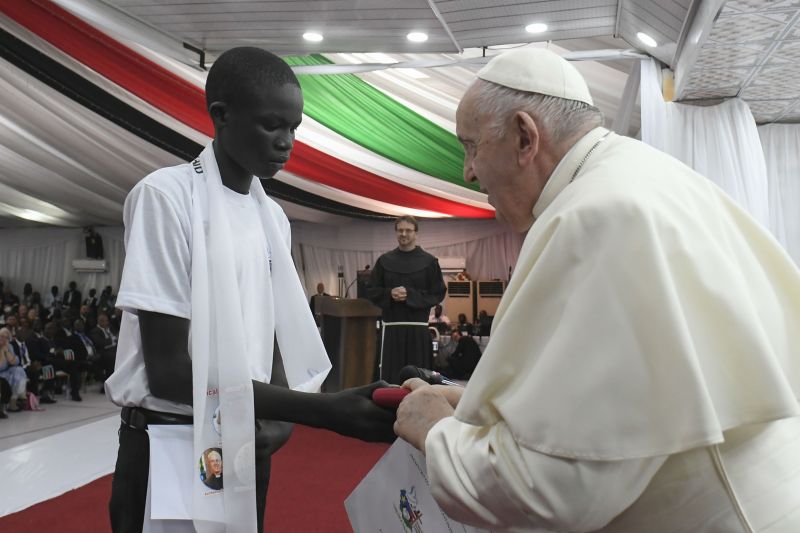
Rome Newsroom, Feb 4, 2023 / 10:25 am (CNA).
Pope Francis was greeted by cheers and ululations on Saturday as he arrived at a meeting with roughly 2,500 South Sudanese refugees.
“You are the seed of a new South Sudan, a seed for the fertile and lush growth of this country,” the pope said, addressing people who are living in refugee camps after being forced to leave their homes because of conflict or flooding.
A choir of 50 internally displaced persons (IDPs) sing in the Nuer language as they wait to meet Pope Francis in South Sudan.
Video by @TurkElias for EWTN News pic.twitter.com/RYVeYpUxsN
— Hannah Brockhaus (@HannahBrockhaus) February 4, 2023
The meeting with internally displaced persons (IDPs) took place at Freedom Hall in South Sudan’s capital of Juba, where Pope Francis is undertaking a pilgrimage of peace from Feb. 3-5.
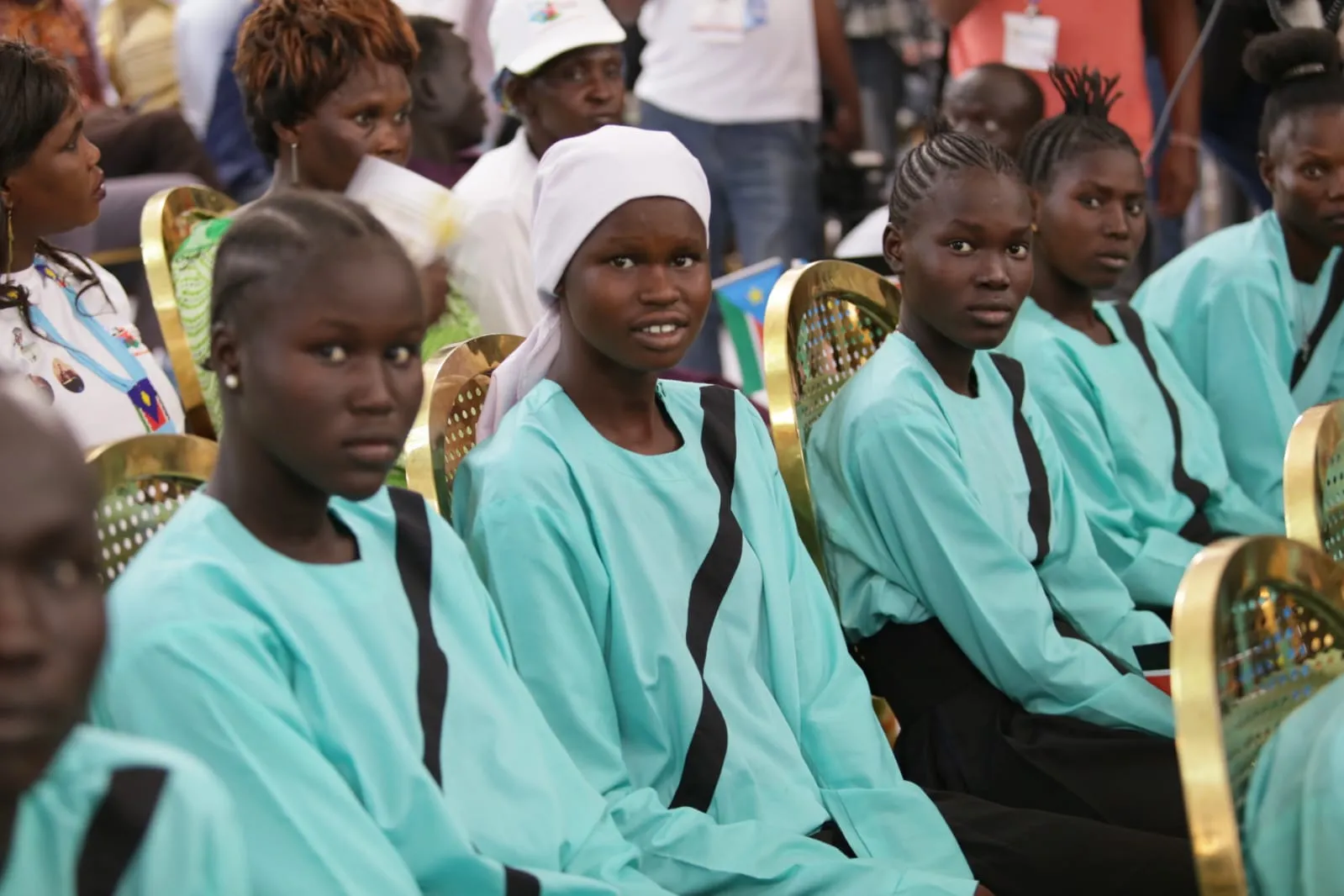
“You, from all your different ethnic groups, you who have suffered and are still suffering, you who do not want to respond to evil with more evil. You, who choose fraternity and forgiveness, are even now cultivating a better tomorrow,” he encouraged those present.
“Be seeds of hope,” he said, “which make it possible for us already to glimpse the tree that one day, hopefully in the near future, will bear fruit.”
During the meeting, a video showed IDP camps in South Sudan and interviews with refugees who spoke about fleeing their homelands.
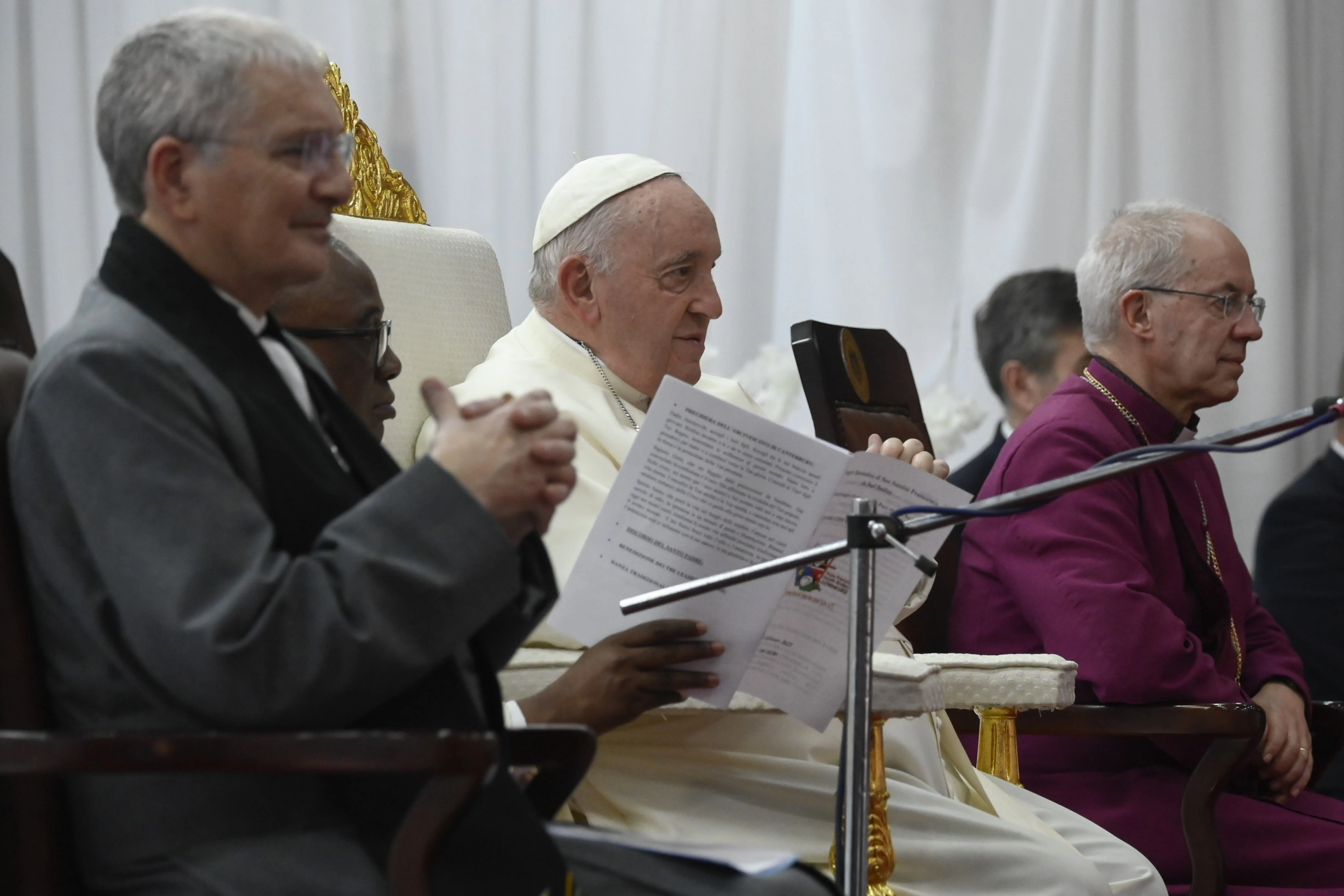
The encounter also included prayers led by the Moderator of the Church of Scotland Iain Greenshields and the Archbishop of Canterbury Justin Welby, who joined Pope Francis for a final blessing on the participants.
Sara Beysolow Nyanti, a representative of the United Nations Mission in South Sudan, gave a presentation on the humanitarian situation in South Sudan, which she called “worrying.”
“For over a decade, the South Sudanese people have experienced conflict, social and political instability, climate shocks, violence, displacement, food insecurity, lack of education opportunities, and access to health care systems,” she said.
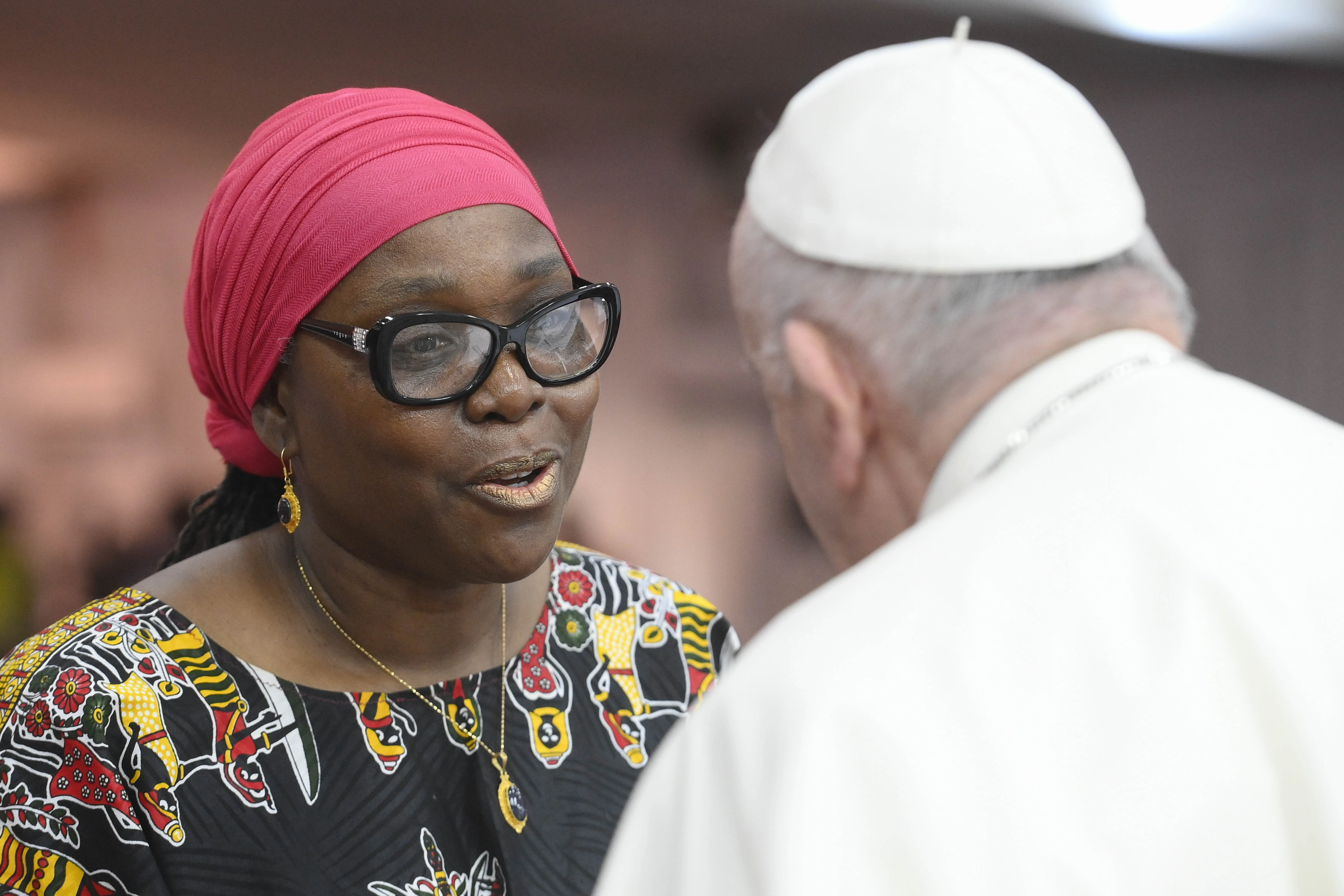
South Sudan has the largest refugee crisis in Africa, with 2 million IDPs due to conflict, insecurity, and environmental challenges, the U.N. Refugee Agency reports.
There are also more than 2 million South Sudanese refugees living in neighboring countries.
Nyanti said in her presentation that an estimated 8 million people in South Sudan are expected to experience food insecurity in 2023.
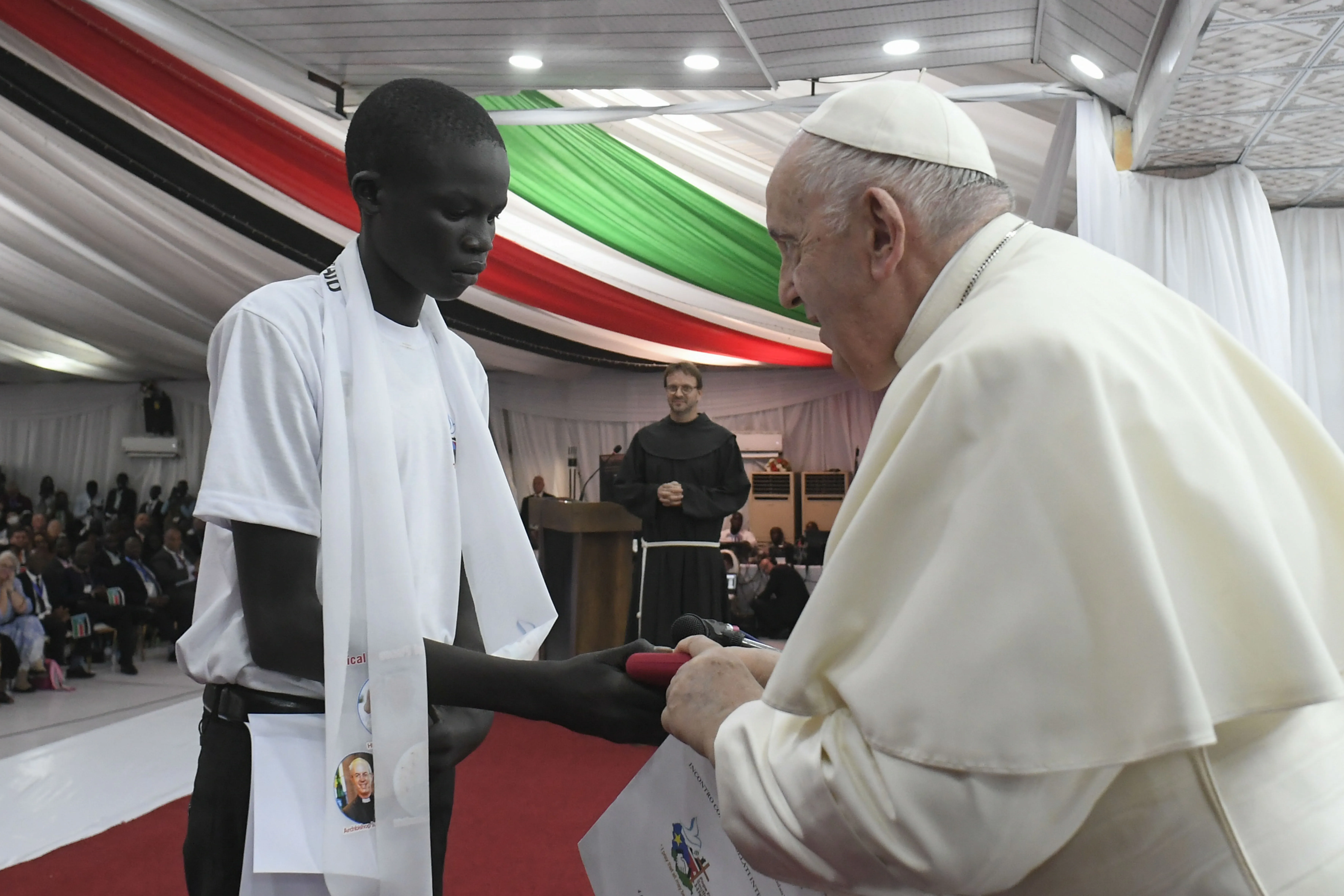
Pope Francis also heard testimony from two 14- and 16-year-old boys and from a young girl, who are living in IDP camps.
The young people asked for peace in their country so that they and other children can have a positive future.
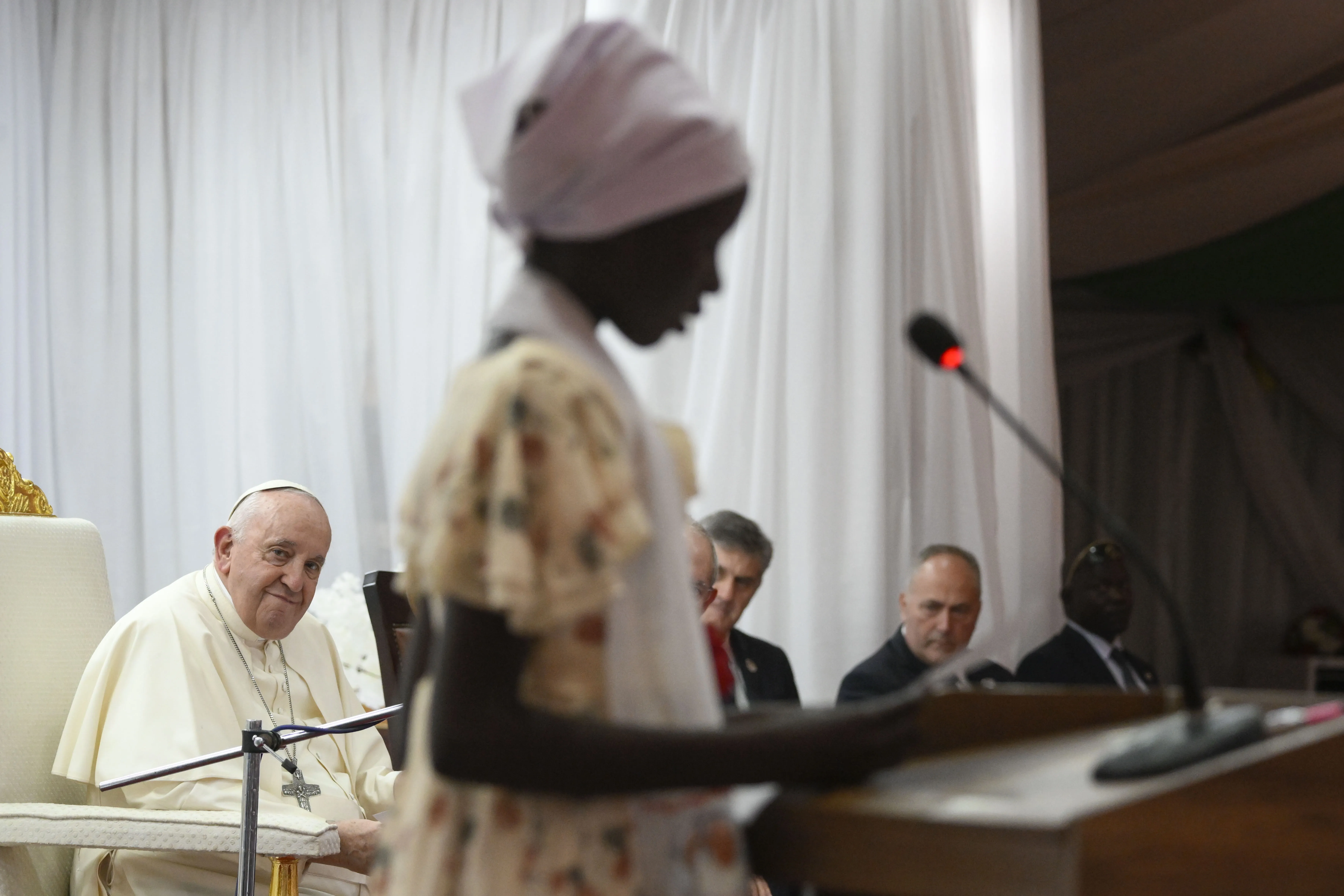
“In the name of Jesus, I want to ask you to give a special blessing for all the children of South Sudan so we can grow together in peace and love,” Nyakuor Rebecca asked Francis. “Pope Francis, we love you. Thank you for loving South Sudan.”
At the end of his speech, Pope Francis responded to her request, and said he would give a special blessing so that the children of South Sudan “might grow up together in peace.”
If you value the news and views Catholic World Report provides, please consider donating to support our efforts. Your contribution will help us continue to make CWR available to all readers worldwide for free, without a subscription. Thank you for your generosity!
Click here for more information on donating to CWR. Click here to sign up for our newsletter.




Leave a Reply